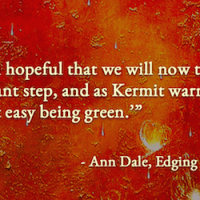Collective intelligence refers to the ability of large groups—a community, region, city or nation—to think and act intelligently in a way that amounts to more than the sum of their parts. In a post-truth world and the aftermath of Brexit, an informed and engaged citizenry is even more critical to democracy and governing. Nesta has just released a new report, Governing with Collective Intelligence, which brings together dozens of examples from around the world. Examples include using mobile phones to conduct micro-surveys across Africa, tracking disease outbreaks using social media, Paris’ participatory budgeting programme, Reykjavik, Iceland’s crowdsource ideas for the development of the city, and open source election monitoring software.
A more engaged, connected Canadian government, that’s smarter about what it does, connected and communicating with its citizens where they are, using big data to enhance civic literacy is a better alternative to the use of referenda, competing trends towards authoritarianism, illiteracy, neglect of facts and evidence and growing public distrust. Come on, Canada, let’s get with it.

Collective Intelligence Network image via Nesta
- Log in to post comments



CRC Comments